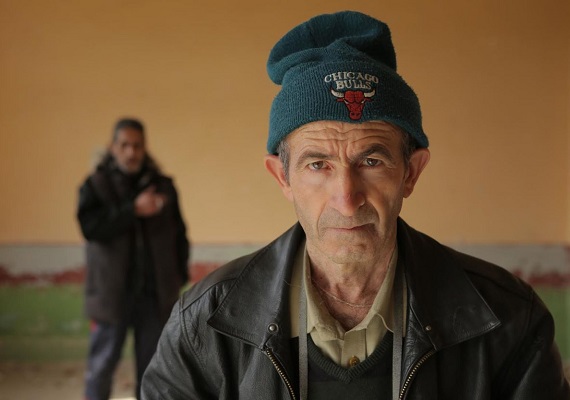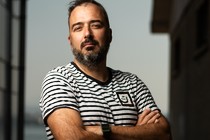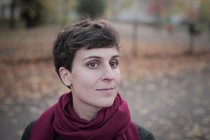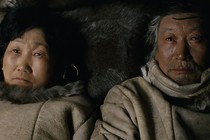The Good Postman: The world according to Ivan
- Tonislav Hristov has come up with a heartwarming, relevant and surprisingly universal take on the refugee crisis

Bulgarian director Tonislav Hristov’s feature-length documentary The Good Postman [+see also:
trailer
film profile], a Finnish-Bulgarian production shown in the World Cinema Documentary Competition at the Sundance Film Festival, efficiently melds two very different social issues in modern-day South-Eastern Europe: the refugee crisis and depopulation. Conveniently set in Great Dervent, a Bulgarian village whose position just a few kilometres away from the Turkish border has made it the backdrop for several important events throughout history, The Good Postman shows different – at times endearing, at others unnerving – perspectives on these pressing issues.
In the doc’s first frames, we see Ivan (Ivan Fransunov), the postman in Great Dervent, walking on a hilltop outside the village. He scans the horizon with binoculars and calls the border police: Syrian refugees have been passing through the village for some time, desperate to get to Sofia, the capital, on their way to a better – or at least a safer – life in Europe. We soon learn that Ivan will be running for the mayor's office in Great Dervent, going up against the incumbent mayor, the indolent Vesa, and Halachev, a forty-something unemployed communist.
It is an excellent setting to discuss issues of probably global proportions, as the main item on Ivan’s political agenda is a policy that would – at least partly – help to solve both regional and local social problems. Formerly a flourishing community, Great Dervent is now dying, as only 40 elderly villagers still live there. Ivan plans to let refugees live in the many deserted, crumbling houses, thus bringing the village back to life. Slowly wandering the dirt alleys carrying his post bag, he explains his point of view to the elderly villagers, in heartwarming conversations that show that common sense may be easier to find in a village than it is at an international summit.
With his camera turned into a silent, seemingly objective observer, Hristov discovers special moments of social communication and goodwill, but also the contrast between theoretical hospitality and the genuine article. More importantly, it captures the contrast between the national and the personal aspects of the crisis.
A former communist country, Bulgaria does indeed know a great deal about these contrasts, stemming from its leaders' terrible lack of interest in social issues: this is explored – half comically, half heartbreakingly – through a comment from a village elder, who reminisces about the communist era, when the border passed between the village and its graveyard, and the villagers needed passports in order to tend to the graves of their ancestors. Things are not much different in the present day, when the incumbent mayor, the almost catatonic Vesa, who spends her time listening to chalga music in her office, admits at one point that she is completely indifferent to the refugee crisis.
A meditation both on the fate of a dying community and the frailty of old age, The Good Postman movingly mixes regional, local and personal perspectives, creating an amazing and complex portrait of life, politics and community. Can a village of 40 people become the backdrop for a relevant discussion on global politics? It certainly can, and in The Good Postman it does so. Post-truth, propaganda, xenophobia, demagogy, communist nostalgia and social cynicism all clash under Ivan’s sad gaze, while Hristov packages the ultra-relevant political battle in Great Dervent into a highly effective, ouroboros-shaped story of struggle and understanding.
Did you enjoy reading this article? Please subscribe to our newsletter to receive more stories like this directly in your inbox.

























